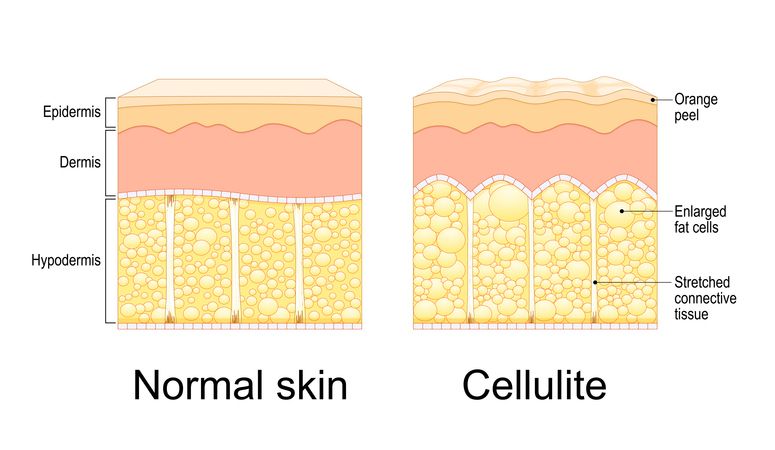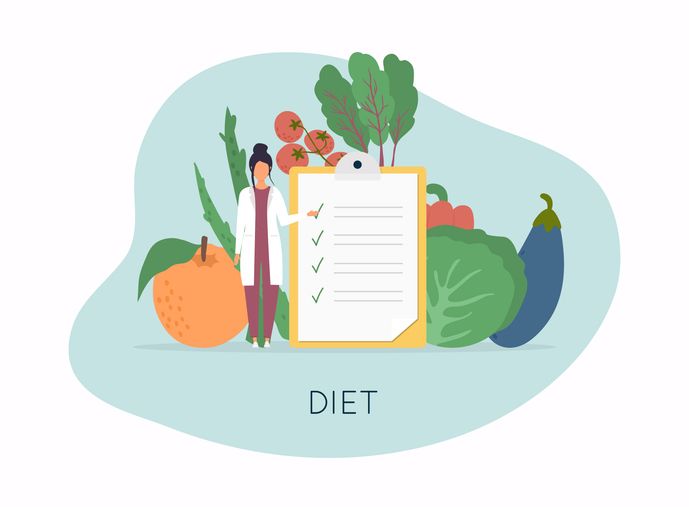
Author: Natalie Ng|Updated: 20 June 2025
If you're eating less but still gaining weight, you are likely to be confused. You’ve cut back on your meals, checked your food intake, and made sure you're sticking to a low calorie diet—so why isn’t the scale moving the way you expected? This situation is more common than you think. Many assume that eating fewer calories always leads to weight loss, but the human body doesn’t work in such a simple way. Factors like poor sleep, chronic stress, and even eating too few calories for too long can all affect your metabolic rate, body fat, and energy balance. Sometimes, your body starts burning fewer calories or holding onto water, and that can shift your weight in unexpected ways. A low calorie diet can also change how much energy you use daily, impact your lean muscle mass, and trigger hormonal changes that affect hunger and fat storage. If you're also more sedentary or not getting enough protein, your energy expenditure may drop even further. There’s a lot more than just how many calories you're eating. If you’re trying to lose weight but feel like it’s not working, keep reading. We'll break down the possible reasons why your calorie intake might not be lining up with your weight goals—and what could be causing weight gain even when you're eating healthy and staying in a calorie deficit.

Weight Gain on a Low-Calorie Diet Reason 1: Your Body Is in Starvation Mode

Eating Too Few Calories Doesn't Cause Fat Gain
Many people blame “starvation mode” when they experience weight gain on a low calorie diet. The idea is that the body stores fat when it doesn’t get enough calories. But the truth is more straightforward: your body can’t gain fat unless you’re taking in more calories than you’re using. If you’re truly in a calorie deficit, your body weight should go down—not up.
So what’s actually happening?
You May Be Undereating Less Than You Think
People often miscalculate their food intake. It’s common to underreport what you eat by 20% or more. That difference can completely cancel out a calorie deficit and lead to weight gain.
Some examples of unnoticed extra calories:
• Oils and dressings used during cooking
• Sauces, spreads, or sugar added to drinks
• Nibbles and snacks throughout the day
• "Healthy" foods eaten in large portions
Even if you’re eating healthy, small bites still increase your daily energy intake.
Eating Less Can Make You Burn Less Energy
Your body adapts when you reduce your food intake. One of those changes is that you naturally move less without realising it. This affects your overall calorie burn and can lead to a lower resting metabolic rate.
Some things that may change with lower calorie intake:
• You walk less or sit more during the day
• Your body fidgets less
• You may skip workouts or put in less effort
• Your muscle mass may start to drop if protein is too low
These changes in physical activity and energy expenditure can make it harder to control weight or aid weight loss.
Track What You Eat and Keep Moving
If you're experiencing weight gain while eating less, it helps to take a closer look at both your calorie intake and activity level. Many people unintentionally enter a more sedentary lifestyle when following a restrictive diet.
What helps:
• Track your meals, snacks, drinks, and cooking ingredients
• Make a note of portion sizes
• Keep up with regular moderate intensity physical activity
• Avoid large gaps between meals that trigger overeating later
Maintaining lean muscle mass through protein and movement supports a healthy metabolism and prevents your body from adapting in ways that reduce how much energy you burn daily.
A calorie deficit only works if both sides of the equation—calories in and calories burned—are accurate. If either is off, even slightly, your weight loss journey can slow or reverse.

Weight Gain on a Low-Calorie Diet Reason 2: Hidden Calories Are Increasing Your Calorie Intake

Small Extras Increase Daily Energy Intake Without Being Noticed
Low calorie diets often focus on tracking main meals, but hidden calories found in everyday foods can lead to unexpected weight gain. These calories come from small additions that seem insignificant but raise total food consumption by more than expected. Over time, this contributes to a higher caloric intake, making it harder to stay in a calorie deficit.
Items like oils, dressings, and sauces often go unmeasured. Small bites while cooking or finishing someone else’s leftovers also count. These moments throughout the day increase your energy intake without contributing to fullness, which can interfere with weight loss and lead to weight regain.
Ingredients That Commonly Contain Untracked Calories
Even when the main meal is measured, commonly used extras contribute more calories than expected:
• Olive oil (1 tablespoon): 120 calories
• Coffee creamer (2 tablespoons): 70 calories
• Salad dressing (2 tablespoons): 140 calories
These numbers may seem small on their own but can total several hundred extra calories over a full day, especially when added across multiple meals and snacks.
Tracking and Portion Awareness Prevent Excessive Intake
Keeping track of everything consumed throughout the day helps prevent hidden calories from affecting weight goals. Kitchen tools like food scales and measuring spoons give more accuracy and help manage portion sizes. This is especially useful for calorie-dense ingredients like oils, condiments, and toppings.
Recording even the smallest items, such as a splash of milk in coffee or a few bites during meal prep, helps build a clearer picture of your true energy balance. Logging all food intake, including snacks, helps avoid unintended increases in total calories.
Book Now to Experience
S6 Body Sculpting Treatment
1 Minute Self-Registration
Date should not be before minimal date

Weight Gain on a Low-Calorie Diet Reason 3: Hormonal Imbalances Are Affecting Your Metabolism
Hormones Influence Energy Use, Cravings, and Fat Storage
Following a low calorie diet doesn't always lead to weight loss if your hormones are out of balance. Hormones play a key role in regulating how the body uses and stores energy, manages hunger, and controls blood sugar levels. When certain hormones shift, they can interfere with your calorie deficit, making it harder to lose weight and easier to gain weight.
Hormones That Disrupt Weight Loss and Increase Fat Mass
Even small hormonal changes can cause the body to store more fat or burn fewer calories. Some of the most common ones include:
• Cortisol: This stress hormone encourages fat storage, especially around the abdomen. It also increases cravings for processed foods high in sugar and fat.
• Insulin: When insulin resistance develops, the body struggles to use carbohydrates for fuel, which leads to more fat being stored. This affects both weight gain and blood sugar control.
• Thyroid hormones (T3 and T4): Low thyroid levels reduce resting metabolic rate, leading to less energy burned throughout the day—even when food intake is low.
• Leptin: Leptin helps signal fullness. When this hormone is disrupted, hunger increases, making it difficult to stick to a calorie deficit.
Steps to Address Hormonal Causes of Weight Gain
• A full hormone panel through a healthcare provider can help identify imbalances
• Medical treatment may include hormone-balancing medications or dietary adjustments
• Reducing chronic stress supports balanced cortisol levels
• Prioritising 7–9 hours of sleep each night helps regulate leptin and insulin
• A steady eating pattern that supports blood sugar control can improve overall hormone health
When hormones are unbalanced, the body can store fat more easily and resist weight loss—even with fewer calories and increased physical activity.

Weight Gain on a Low-Calorie Diet Reason 4: Stress and Poor Sleep Disrupt Weight Regulation
Cortisol From Chronic Stress Increases Fat Storage
Even with reduced calorie intake, long-term stress can interfere with fat loss and lead to weight gain. When the body is under ongoing pressure, it produces more cortisol—a hormone that encourages the body to store fat, especially around the midsection. This hormonal response increases fat mass even when food intake is low.
Cortisol also triggers cravings for high-calorie, processed foods. These cravings can lead to unplanned eating, which increases total calorie intake without true hunger. Over time, this pattern disrupts energy balance and contributes to body weight gain.
Stress comes in many forms—tight deadlines, emotional tension, sleep disruptions, or physical fatigue. The body reacts the same way to all types. That hormonal reaction reduces energy expenditure, slows down metabolism, and encourages fat storage.
Poor Sleep Alters Hunger Hormones and Increases Cravings
Sleep has a direct impact on hormones that regulate hunger and fullness. When sleep quality is poor, the body produces more ghrelin (the hormone that signals hunger) and less leptin (the hormone that signals fullness). This imbalance causes stronger cravings and reduces satisfaction from meals, which makes it easier to overeat—even on a low calorie diet.
Sleep patterns influence these hormones as follows:
• 4–5 hours of sleep: Higher ghrelin increases hunger throughout the day
• 5–6 hours of sleep: Reduced leptin leads to a weaker sense of fullness
• 6–7 hours of sleep: Hormone balance starts to improve, but appetite may still fluctuate
• 8 or more hours of sleep: Normal levels of ghrelin and leptin restore appetite control
Sleep also affects energy levels and motivation. Poor sleep can reduce physical activity and lead to a more sedentary lifestyle, further lowering the number of calories burned daily.
Combined Effects of Stress and Poor Sleep
When stress and poor sleep occur together, the body reacts by holding onto fat while driving up food consumption. These changes reduce calorie burn, increase cravings, and disrupt appetite regulation—all of which make it harder to maintain weight loss or control weight on a low calorie diet.
Book Now to Experience
S6 Body Sculpting Treatment
1 Minute Self-Registration
Date should not be before minimal date

Weight Gain on a Low-Calorie Diet Reason 5: Insufficient Protein Slows Down Your Metabolism
Protein Supports Lean Muscle and Calorie Burn
Protein plays a key role in maintaining and building lean muscle mass, which directly supports a healthy metabolic rate. When following a low calorie diet, the body still needs enough protein to fuel recovery, maintain muscle, and preserve energy expenditure. Without it, the body may start to break down muscle tissue for energy, especially if you're also increasing physical activity.
Muscle mass influences how many calories you burn each day. Less muscle means fewer calories burned at rest, which can cause fat gain over time—even when eating fewer calories. If daily protein intake is too low, it's difficult to maintain muscle, and weight loss may slow down or stop altogether.
Protein Intake Needed to Preserve Muscle While Dieting
Restricting calories without enough protein can lead to a loss of lean muscle, which reduces how much energy your body uses during rest and movement. This drop in resting metabolic rate makes it harder to lose weight and easier to regain weight, especially during or after a calorie-restricted diet.
To help maintain lean muscle mass and support fat loss:
• Aim for 0.8–1 gram of protein per pound of body weight per day
• Include a protein source at every meal and snack
• Space protein intake evenly throughout the day
• Add strength training 2–3 times per week to support muscle growth
Metabolism Slows Without Sufficient Protein
When your diet lacks protein, your metabolism loses one of its key supports. The body begins using muscle tissue for fuel, which directly impacts how much energy you burn every day. Over time, this can lead to a cycle where body fat increases while muscle mass decreases—even if overall caloric intake remains low.
This loss of muscle weakens your ability to stay in a calorie deficit. It can also reduce how efficiently your body responds to physical activity. To support your metabolism and feel more energised during your weight loss journey, include lean protein sources such as chicken breast, fish, eggs, Greek yogurt, tofu, or legumes in each meal.
Eating enough protein doesn’t just help with satiety—it also protects your lean body mass and helps you burn more calories throughout the day. This makes it easier to maintain a healthy weight while eating fewer calories.

Weight Gain on a Low-Calorie Diet Reason 6: Medical Conditions Are Interfering With Weight Loss
Certain Health Issues Affect Metabolism and Fat Storage
Even when calorie intake is reduced and healthy foods are part of your diet, some medical conditions can slow down weight loss or even lead to weight gain. These conditions affect how the body processes nutrients, stores fat, and uses energy, which can override the effects of a calorie deficit. In these cases, sticking to a low calorie diet may not be enough to see results.
Metabolism, hormone levels, and how much energy your body burns are all impacted by various health issues. When these internal systems aren’t working efficiently, controlling weight becomes more difficult—regardless of how much energy you’re consuming or burning.
Common Conditions That Influence Body Weight
Several conditions can make it harder to lose weight or easier to gain weight, even with a calorie restriction:
• Hypothyroidism: A slowed thyroid function leads to a reduced basal metabolic rate, which means fewer calories burned at rest. This can cause body weight to increase even with a lower calorie intake.
• Polycystic Ovary Syndrome (PCOS): This condition affects hormone levels and insulin sensitivity, which increases fat storage and reduces energy expenditure. It also makes it harder to maintain a healthy weight.
• Cushing’s Syndrome: A hormonal disorder that causes the body to produce too much cortisol, leading to fat gain—especially around the belly and face.
• Certain medications: Some medications for depression, diabetes, or high blood pressure may cause weight gain as a side effect, even if you’re eating healthy and staying active.
Book Now to Experience
S6 Body Sculpting Treatment
1 Minute Self-Registration
Date should not be before minimal date

Weight Gain on a Low-Calorie Diet Reason 7: Your Exercise Routine Is No Longer Effective
Repeating the Same Workouts Reduces Calorie Burn
Physical activity plays an important role in weight loss and energy balance, but the body adapts to repeated routines. When workouts don’t change over time, they become easier to complete, requiring less energy to perform. This adaptation means your body burns fewer calories doing the same exercises that once supported your calorie deficit.
As calorie burn decreases, fat loss may slow or stop altogether—even if your food intake stays the same. Over time, this can lead to weight gain, especially if fewer calories are burned than expected. The more efficient your body becomes at a routine, the less effective it is for changing your body composition.
Lack of Variety Affects Lean Muscle Mass and Activity Levels
Doing only one type of exercise, especially cardio, without strength training limits your ability to build or maintain lean muscle mass. Since muscle helps support a higher resting metabolic rate, losing muscle over time means you’ll burn less energy even while at rest. This change can make it harder to lose weight and easier to regain weight, even on a low calorie diet.
Your routine might also lead to physical fatigue or reduced motivation, causing a drop in non-exercise activity. This includes movement outside workouts—such as walking, standing, or taking stairs—which contributes to total daily energy expenditure.
Some signs your routine may be working against your weight loss goals:
• Fatigue or soreness after every session
• No increase in strength, endurance, or movement
• Plateaued weight despite regular workouts
• Minimal physical activity outside exercise hours

Weight Gain on a Low-Calorie Diet Reason 8: Water Retention and Inflammation Mask Fat Loss
Fluid Buildup Causes Short-Term Increases in Body Weight
Even when your calorie intake is controlled, and you're eating healthy foods, your body weight may still increase due to water retention. This temporary gain can create the illusion that fat loss has stalled or reversed, even if you're in a consistent caloric deficit.
Water retention happens when the body holds onto extra fluid, often in response to diet, physical activity, or internal stress. This retained water adds weight without reflecting a true change in body fat. It's common for body weight to fluctuate several pounds from fluid alone—especially during periods of high sodium intake or physical inflammation.
Inflammation and Hormones Contribute to Water Weight
Inflammation can trigger fluid retention and disrupt your weight loss progress. The body reacts to stress, injury, and certain foods with a mild inflammatory response, which may lead to temporary swelling and weight gain.
Factors that often contribute to inflammation and water retention include:
• High sodium intake: Consuming more than 2,300 mg of sodium daily can lead to your body holding onto 3–4 extra pounds of water
• Intense exercise: Hard workouts create micro-tears in muscle, which causes temporary inflammation and fluid buildup as the body repairs tissue
• Hormonal changes: Shifts in estrogen, progesterone, and cortisol can lead to short-term increases in fluid retention, especially around the abdomen
• Food sensitivities: Certain ingredients, such as gluten or dairy, may trigger inflammatory responses in some people, leading to bloating and swelling
These factors don’t reflect a gain in fat mass, but they do affect how your weight appears on the scale.
Book Now to Experience
S6 Body Sculpting Treatment
1 Minute Self-Registration
Date should not be before minimal date

Focus on Fat Loss, Not Just the Scale: How Body Composition Affects Weight Loss
When you set out to lose weight, it’s important to look beyond the number on the scale and focus on what you’re actually losing—body fat or muscle mass. Achieving a healthy weight isn’t just about eating fewer calories; it’s about improving your body composition by reducing fat while preserving lean muscle.
Losing body fat is the goal for most people, as excess fat is linked to health risks like heart disease, diabetes, and other chronic conditions. However, if your calorie intake is too low or your diet lacks balance, your body may start breaking down muscle for energy. This loss of muscle mass can slow your resting metabolic rate, meaning you burn fewer calories even when you’re not active. Over time, this makes it harder to lose weight and easier to regain it, even if you’re still eating a low calorie diet.
Muscle mass is essential for a healthy metabolism and helps you burn more calories throughout the day. When you lose muscle, your energy expenditure drops, and your body becomes more efficient at holding onto body fat. This is why some people find themselves stuck in a weight loss plateau or even experiencing weight gain, despite eating fewer calories.
To lose fat and maintain muscle, focus on creating a moderate calorie deficit—enough to promote fat loss, but not so extreme that your body starts burning muscle for fuel. This means paying attention to your overall energy balance: the relationship between calories consumed (energy intake) and calories burned (energy expenditure). A healthy weight loss journey should include:
• Balanced food intake: Choose whole, nutrient-dense foods like lean proteins, vegetables, fruits, whole grains, and healthy fats. Limit processed foods and high fat foods that add extra calories without much nutrition.
• Regular physical activity: Combine moderate intensity exercise with strength training to support muscle mass and increase calories burned.
• Adequate calorie intake: Avoid drastic calorie restriction. Eating too few calories can cause your body to burn fewer calories and slow your metabolic rate.
• Consistent energy balance: Track your caloric intake and monitor your progress to ensure you’re losing fat, not muscle.
• Healthy lifestyle habits: Get enough sleep, manage stress, and stay hydrated to support your metabolism and overall health.
Remember, sustainable weight loss is about more than just eating less. It’s about making smart food choices, staying active, and supporting your body’s ability to burn fat while holding onto valuable muscle. By focusing on body composition—not just the scale—you’ll be more likely to reach your target weight, maintain your results, and enjoy the health benefits of a leaner, stronger body.

Weight Gain on a Low-Calorie Diet: How S6 Body Sculpting Treatment Supports Fat Reduction
Some Fat Just Doesn’t Respond to Diet Alone
Eating fewer calories and sticking to a low calorie diet doesn’t always lead to the body shape you want. Even with regular physical activity and clean eating, certain areas of stubborn fat—like the belly, thighs, back, or arms—can remain unchanged. These spots often resist diet-based fat loss due to factors like genetics, lower muscle mass, hormonal shifts, and reduced energy expenditure during calorie restriction.
This is where S6 Body Sculpting Treatment can support your weight loss journey. By targeting specific areas with non-invasive technology, the treatment helps break down fat cells that are difficult to reduce through calorie control alone.
S6 Body Sculpting Enhances Fat Loss Without Surgery
The S6 Body Sculpting Treatment is a non-surgical body contouring solution designed to support fat reduction and reshape areas where body fat tends to stay—even when you're eating healthy and watching your caloric intake.
Here’s how the treatment works:
• A low-energy bio-laser penetrates the subcutaneous fat layers and stimulates the breakdown of fat cells by triggering the release of fatty acids
• Aesthetic therapists follow this with vacuum suction massage to speed up lymphatic drainage, promoting fat metabolism and improving body composition
• At the same time, the laser energy encourages collagen production, helping to firm the skin in treated areas and reduce the risk of sagging during weight loss
Each session targets common trouble zones like the waist, belly, back, arms, thighs, calves, and lower buttocks—all of which are prone to holding excess fat, especially during or after a calorie deficit.
Benefits That Support a Healthy Weight and Metabolism
The S6 treatment offers more than just inch loss. It works alongside your low calorie diet by supporting your body’s natural fat elimination process and maintaining a healthy metabolism.
Advantages of the treatment include:
• Helps reduce stubborn fat in areas resistant to calorie restriction
• Supports a higher metabolic rate through enhanced circulation and lymphatic flow
• Maintains lean body mass by reducing fat without affecting muscle
• Improves skin firmness with collagen stimulation
• Involves no downtime, injections, or surgery
• Safe for various body types and suitable for people aiming to lose fat without disrupting their routine
While reducing calorie intake is important for losing weight, some areas may need extra support to release stored fat and achieve your ideal shape. The S6 Body Sculpting Treatment fills that gap by helping your body burn fewer calories more efficiently and release fat in a targeted way—without relying on extreme diet changes or heavy workouts.
Ready to take the next step in your weight loss journey? Book your S6 Body Sculpting Treatment today and start reshaping your body in a healthy, non-invasive way.
New Beauty's S6 Body Sculpting TreatmentBook Now to Experience
S6 Body Sculpting Treatment
1 Minute Self-Registration
Date should not be before minimal date
FAQ
1. Can eating too few calories cause long-term weight gain?
Yes, following an extremely low calorie diet for a long time can reduce your basal metabolic rate, leading your body to burn fewer calories even at rest. This happens because the body enters a conservation mode, slowing down energy expenditure to preserve fuel. Over time, this can make it easier to gain weight once normal eating resumes, especially if lean muscle mass has been lost due to inadequate nutrient intake.
2. Why do I gain weight after increasing my calorie intake slightly?
When you increase your calorie intake after a period of calorie restriction, your body may retain water or replenish glycogen stores, leading to temporary weight gain. This doesn't necessarily reflect fat gain. After a restrictive diet, even a small increase in food consumption can seem like a shock to the system, especially if your metabolism has slowed. This is why weight regain is common during the transition from a calorie deficit to maintenance.
3. Is it possible to gain fat while eating healthy foods?
Yes, even healthy foods can lead to weight gain if your total energy intake is greater than the number of calories burned. Foods like nuts, avocado, and olive oil are nutritious but calorie-dense. Without portion control or an understanding of how much energy your body needs, eating more calories than required—even from healthy foods—can result in increased body fat over time.
4. Does a sedentary lifestyle affect weight loss on a low calorie diet?
Absolutely. Even if you're eating fewer calories, a more sedentary lifestyle means you're burning less energy throughout the day. This imbalance between calorie intake and energy expenditure can lead to slower weight loss or even weight gain. Movement outside of formal workouts—like walking, standing, or fidgeting—also contributes significantly to daily calorie burn and helps prevent fat accumulation.
5. Can body composition change without visible weight loss?
Yes, changes in body composition can occur even if the scale doesn’t move. You may be losing fat and gaining lean muscle mass at the same time, especially if you’ve added strength training to your routine. This is a healthy form of progress, as increased muscle supports a higher resting metabolic rate and improved physical appearance—even without dramatic weight loss on the scale. This is why focusing solely on body weight can be misleading when evaluating fat loss success.
Recommended Articles
COPYRIGHT© NEW BEAUTY MANAGEMENT LIMITED 2026. ALL RIGHT RESERVED.




